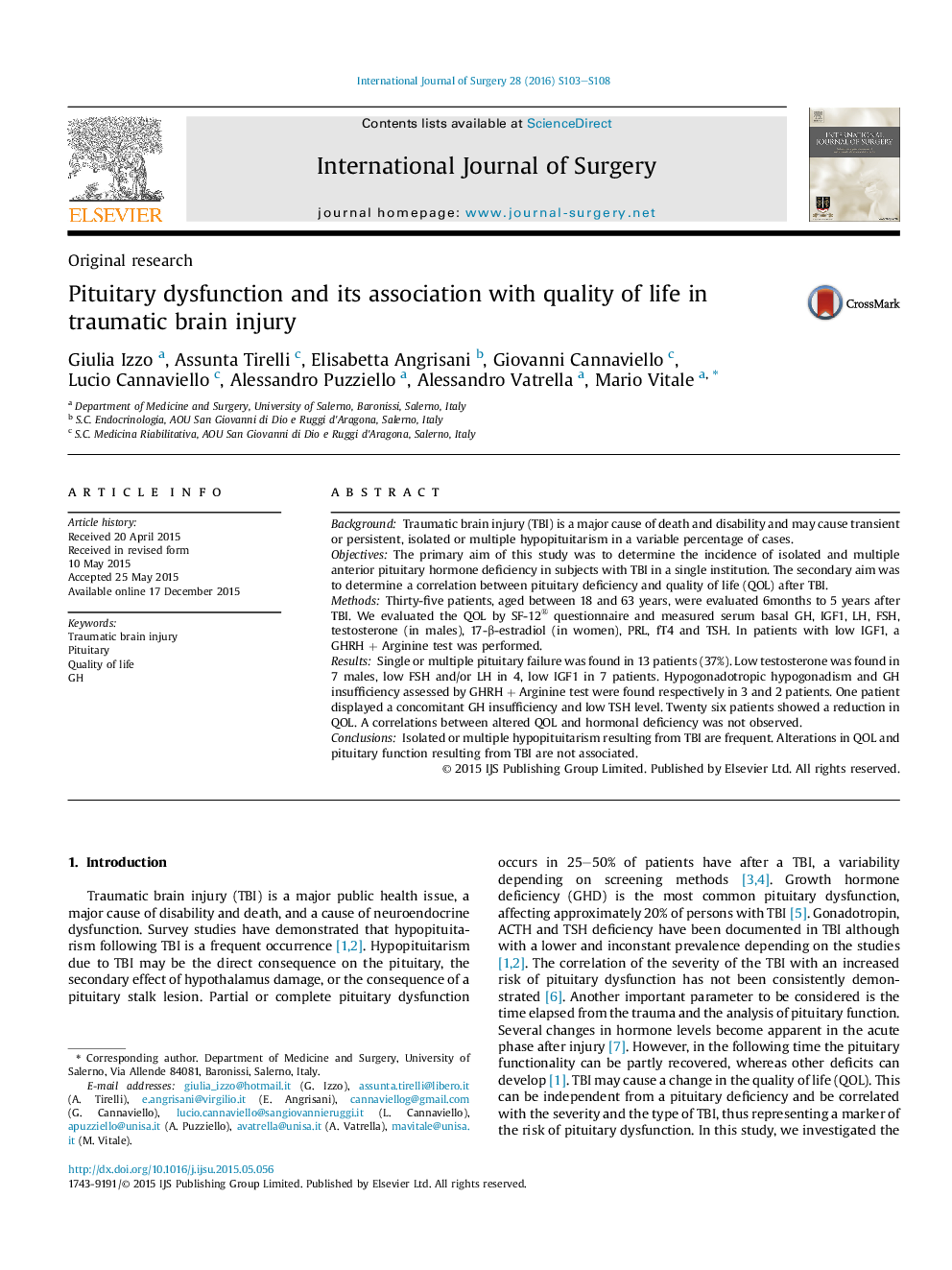| کد مقاله | کد نشریه | سال انتشار | مقاله انگلیسی | نسخه تمام متن |
|---|---|---|---|---|
| 4285541 | 1611960 | 2016 | 6 صفحه PDF | دانلود رایگان |
BackgroundTraumatic brain injury (TBI) is a major cause of death and disability and may cause transient or persistent, isolated or multiple hypopituitarism in a variable percentage of cases.ObjectivesThe primary aim of this study was to determine the incidence of isolated and multiple anterior pituitary hormone deficiency in subjects with TBI in a single institution. The secondary aim was to determine a correlation between pituitary deficiency and quality of life (QOL) after TBI.MethodsThirty-five patients, aged between 18 and 63 years, were evaluated 6months to 5 years after TBI. We evaluated the QOL by SF-12® questionnaire and measured serum basal GH, IGF1, LH, FSH, testosterone (in males), 17-β-estradiol (in women), PRL, fT4 and TSH. In patients with low IGF1, a GHRH + Arginine test was performed.ResultsSingle or multiple pituitary failure was found in 13 patients (37%). Low testosterone was found in 7 males, low FSH and/or LH in 4, low IGF1 in 7 patients. Hypogonadotropic hypogonadism and GH insufficiency assessed by GHRH + Arginine test were found respectively in 3 and 2 patients. One patient displayed a concomitant GH insufficiency and low TSH level. Twenty six patients showed a reduction in QOL. A correlations between altered QOL and hormonal deficiency was not observed.ConclusionsIsolated or multiple hypopituitarism resulting from TBI are frequent. Alterations in QOL and pituitary function resulting from TBI are not associated.
Journal: International Journal of Surgery - Volume 28, Supplement 1, April 2016, Pages S103–S108
